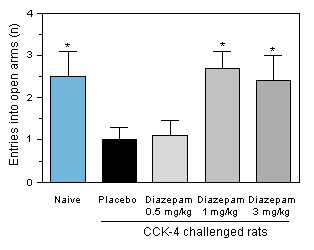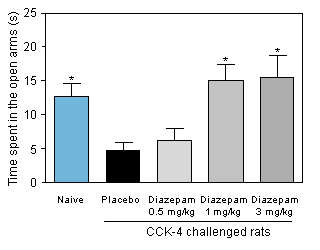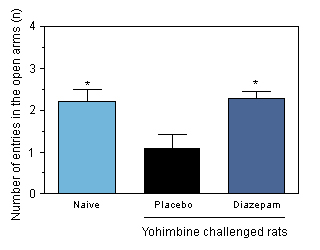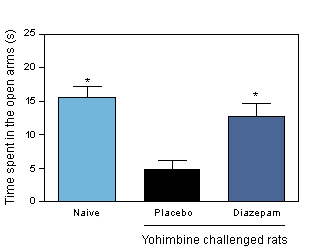Newsletter # 20

Animal models
In line with the clinical finding, benzodiazepines normalize the panic anxiety status of rats challenged with CCK-4 or with Yohimbine. This test is cost effective and has a short turn around time.
-
Graphs show CCK-4 (or Yohimbine)-induced panic anxiety and normalizing effects of diazepam treatment.
-

Number of entries into the open arms of the EPM
Lesser are the time spent as well as the number of entries in the open arms, higher is the Panic Anxiety status of rats.
*, statistically different as compared to the placebo treatment -

Time spent in the open arms of the EPM.
Lesser are the time spent as well as the number of entries in the open arms, higher is the Panic Anxiety status of rats.
*, statistically different as compared to the placebo treatment
-

Number of entries into the open arms of the EPM
Lesser are the time spent as well as the number of entries in the open arms, higher is the Panic Anxiety status of rats.
*, statistically different as compared to the placebo treatment -

Time spent in the open arms of the EPM.
Lesser are the time spent as well as the number of entries in the open arms, higher is the Panic Anxiety status of rats.
*, statistically different as compared to the placebo treatment
-
We look forward to hearing from you.
Get in touch


 PREVIOUS
PREVIOUS